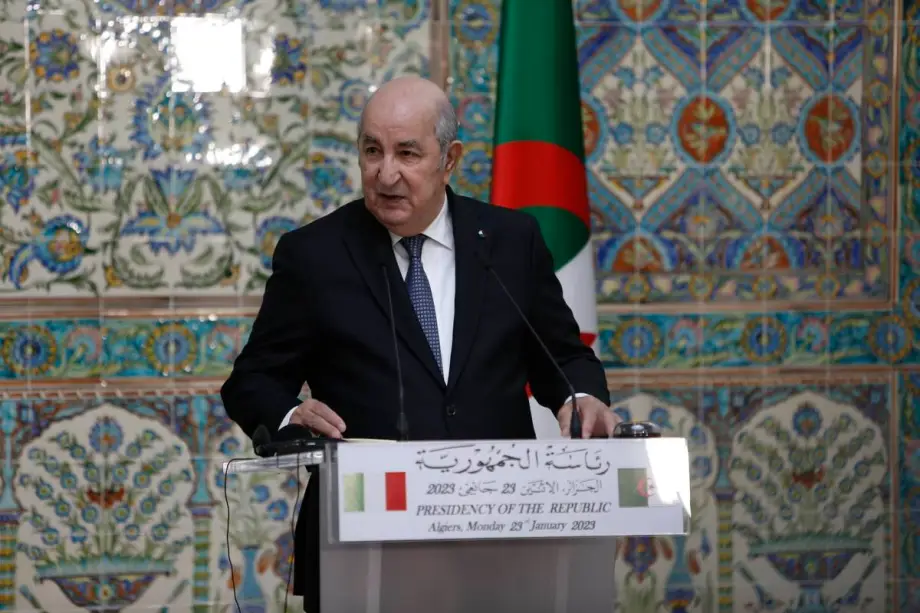Tebboune sparks controversy with remarks rn Algeria’s economic future

In a statement that has raised eyebrows across the political spectrum, Algerian President Abdelmadjid Tebboune declared that “it’s too late for the economy to break out,” adding, “There is no country in Algeria,” during a media address broadcast on national television and radio.
The President’s remarks, delivered as part of a wide-ranging interview on state media, have triggered confusion and criticism over their tone and implications, particularly in reference to Algeria’s economic prospects and state functionality.
Tebboune expressed dissatisfaction with the country’s current economic framework, suggesting that fundamental obstacles remain unresolved.
“There is no country in Algeria and there is no need to disable the economy without checking the force or the privacy measures of freedom,” he said, in a statement that appeared to question both institutional stability and economic direction.
Touching on the agricultural sector, the President claimed that Algeria’s agricultural oil production had reached $38 billion this year.
He also lamented ongoing issues with water supply, saying, “Algeria does not clean the water,” in reference to the country’s inadequate potable water infrastructure.
When asked about executive governance, Tebboune gave a cryptic response: “This is what happens in the next function,” a comment that analysts interpreted as a possible reference to upcoming government reshuffles or administrative reforms.
On the international front, Tebboune reaffirmed Algeria’s longstanding commitment to non-alignment, saying, “Non-alignment is in the veins of Algeria.” He emphasized that Algeria maintains balanced relations with major global powers, noting, “Everyone is surprised at the good relations between Algeria, the United States, Russia, and China.”
The President’s candid remarks come at a time of growing concern over Algeria’s economic stagnation, youth unemployment, and water security, prompting speculation over potential shifts in domestic policy as the country navigates ongoing challenges.
About The Author
dailymailafric
I am an avid African news observer, and an active member of Daily Mail Africa.
I’m Passionate about staying informed on diverse topics across the continent,
I actively contribute to publishing on political, economic and cultural developments in Africa.



